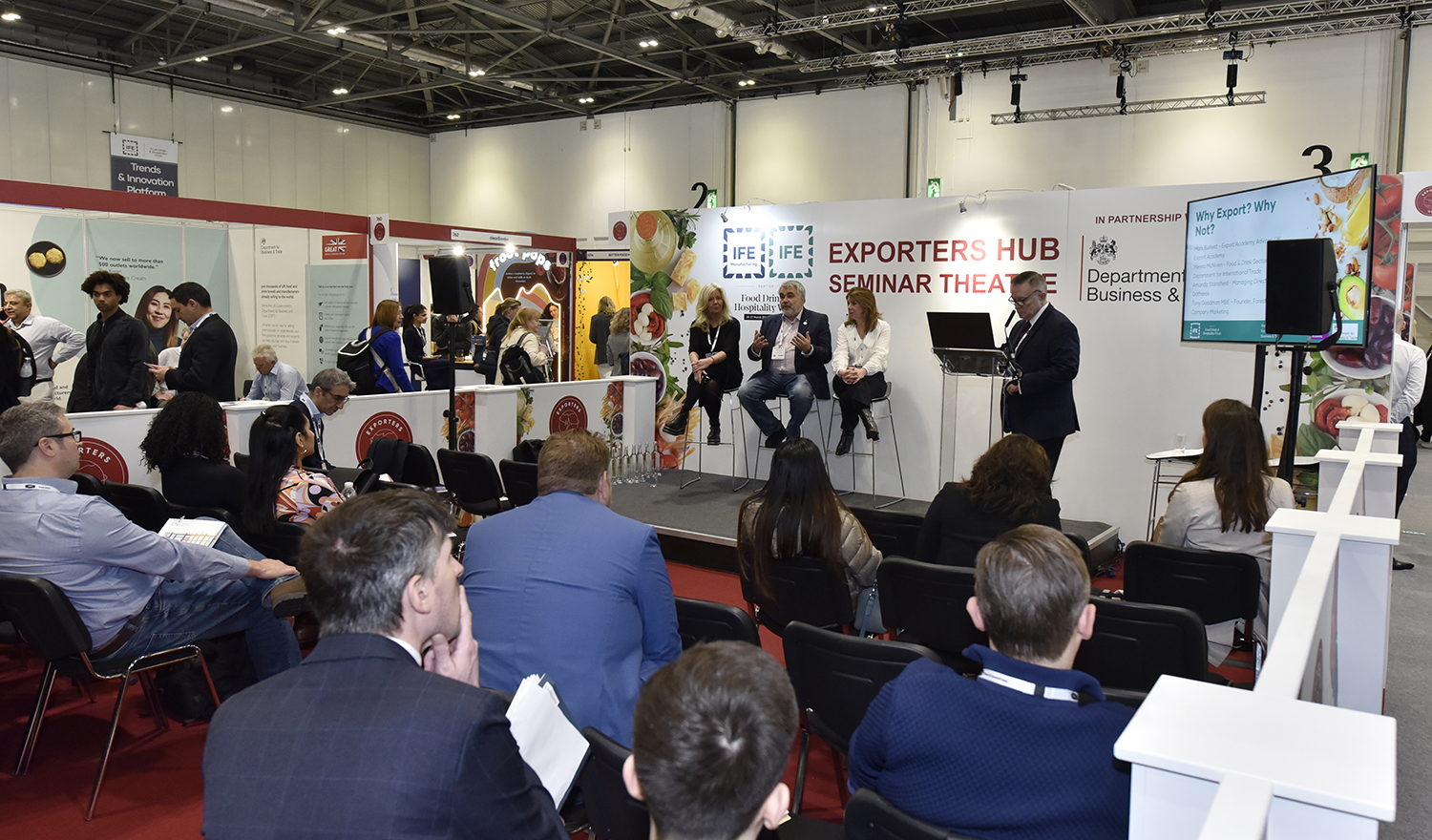
At this week’s International Food and Drink Event (25–27 March), organic food and sustainable exports came into focus, while the question of producing more food domestically or ‘nearshoring’ recurred.
The organic challenge
One speaker on Tuesday afternoon looked at the unique challenges for exporters of organic food and opportunities to export sustainably. Lee Holdstock is senior trade relations manager at Soil Association Certification, which provides certification that a product is organic for businesses.
“One of the challenges we have with organic is that it is more expensive—not always, but we need to be clear with consumers that these products cost-in their impact.
“When they’re only 1.5% of the market, we have economies of scale issues. We need to focus on growing our organic exports in the way that Italy or Denmark are, with a government that actually supports this, which is helping everyone.”
He added that there needs to be an “export substitution economy” in the UK, where there is a “great heritage” in organic farms. Some UK brands have centuries of history, he said, and it is “very powerful” that UK brands are so trusted in other markets.
Organic food needs to be supported, Holdstock suggested. He noted that financial firms had told him that de-risking food and agriculture was a priority after recent oil and gas shocks, while public procurement presents an opportunity that has not yet fully been explored.
A potential new government following the upcoming general election could be a turning point, and he noted the shadow minister for environment and food, Daniel Zeichner, had concurred on the question.
Founder of coconut-based product maker Cocofina Jacob Thundil also spoke to say that, “even with Brexit”, the potential for export to the EU market remained “huge” for UK producers of organic food.
Challenge of nearshoring
JMB International deputy CEO Arnab Sengupta was also at the event. The joint Thai-French food procurement agent helps large brands source from Southeast Asia and India for sale in the US and Europe, as well as Latin America.
Reflecting on some of the themes raised by Holdstock, he suggested that recent moves towards ‘nearshoring’ food production would have to “battle” with lower-cost food from Asian producers that meets the same standards.
On the UK, he said there is opportunity for suppliers to offer more competitive prices on food. In an age of supply chain security coming under closer scrutiny, he maintained that “each country needs to focus on certain products that they are good at”.
“It would be good to have a standard, uniform tariff rate that’s really affordable and non-discriminatory. I spent a lot of years in the Middle East, where there was a standard tariff and that helps because you get really competitive products.
“When I began my career, peanut butter would only come from the US and Canada. Then it moved to Argentina, then China and now it’s all moved to India. Vietnam’s the same with Robusta coffee. It’s interesting to see how local sourcing moves.
“Each country develops, then something happens and there’s some geopolitical move and you say oh, that’s a good [opportunity] to work with.”
Serbian exports on the rise
Alexandr Vincic, owner of Serbian winemaker Vinarija Vincic, spoke to the Daily Update on the developing trade relationship between his country and the UK.
“The UK is a very good—and very big—market. We had a meeting recently with a UK company about selling our wine in the UK and I expect that it will be on the market in the country within a month.”
The main challenge for Serbian firms exporting to the UK in the wine market is competition, he said, but he suggested that those who can achieve a high standard are rewarded, citing his hope that recent awards the firm had won would lead to UK success. The relationship between the UK and Serbia on trade is “very good”, Vincic added, saying there is strong support from UK representatives for Serbian firms to grow.
Richard Moir, director of the British-Serbian Chamber of Commerce, argued that Serbia was an innovation centre and a “platform for trade in the western Balkans in general”. He noted that trade between the UK and Serbia crossed the threshold of £1bn in Q3 2023.
He said there was a growing need for mentoring of young businesspeople and set up businesses to export in Serbia.

